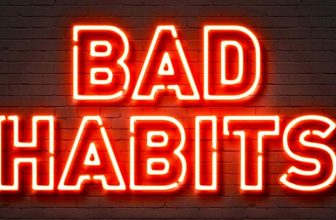
“Imperfection is beauty, madness is genius and it’s better to be absolutely ridiculous than absolutely boring.” –Marilyn Monroe. If you’ve been following our mindset section lately, you’ll see that we’ve been delving a bit deeper into the unique perspectives of Charles Bukowski. So, without further ado, welcome to the last part of this Jungian analysis on Charles Bukowski (Part 3 of 3)!
In this article we will talk about the following topics.
- The Self
- Unconscious
- The Self and Archetypes
Followed by my final conclusions. Once we finish you‘ll be able to understand more about Bukowski’s behaviour and, hopefully, you’ll be able to see him as a person and his work in a different, more empathetic light. Let’s begin!
The Self
The self is the central part of consciousness, which provides coherence and direction in conscious life.
It could be said that Bukowski’s reality, his conscious life, is quite dark. This is due to many cases of abuse from his father and from life in general, they changed his vision of both the world and himself. Many times, this reality was distorted by darkness, but thanks to writing he was able to find a little light and meaning along the way. Due to the difficulty of defining it, he divides it into two:
Personal Unconscious
These are the repressed thoughts and memories due to a strong emotional charge or irrelevant thoughts.
Collective Unconscious
This refers to what would not be provided by our personal experience, but by our heritage and ancestors. Curiously, we can see that many of his memories in his poems, when he talks about his family and especially his father (which, in many cases would be repressed due to his strong emotional energy) would later come to light as traumas.
Having said this, I must clarify that what is important in these concepts is the collective unconscious. Remember, he came from a German mother and an American father who participated in the war. From an early age, we can see his coldness, aggressiveness and his modus operandi.
From a Jungian perspective, he has a very particular and tough lineage which is expressed in his youth, fighting to gain respect. And on the other hand, the influence of the great German minds on his writings and the ability to survive in adverse situations are observed.
Self and Archetypes
The self refers to the totality of people, the central archetype. Archetypes are representations of the most basic motivations of a human being. Although it may present a mixture of various characteristics, I associate it with the magician archetype.
They have a true belief in their ideas and want to share them with others. They are often able to see things in a completely different way than other personality types and can use these insights to bring transformative ideas and philosophies to the world. From a ‘colder’ perspective, he would say that he had his way of seeing the world, from a broken magnifying glass that allowed him to see flowers in hell.
Thanks to his writings and his translations, many of his ideals were shared with the world, such as if we are not going to go all the way for something we want, it‘s better not to try.
Conclusion
I conclude this article with his 1990 letter, indeed, I did not write much about my ideas, but it‘s because his poems express my points of view better than I could. Jung and Bukowski, both were hated, undervalued, and misunderstood, but both achieved their goal; they planted an idea in the heads of their followers.
There are many ways to analyse your life (the truth of both), coming from a broken family, traumas, loneliness and the long-term consequences. Charles was a person with a bright and pure soul (another term used by Jung), which was not recognized as deserved at the time. Let’s hope that the day will come when his works are valued as they should be.
So, this wraps up this series of 3 articles about Charles Bukowski through the lens of Carl Jung‘s ideas and work. I hope you enjoyed it as much as I enjoyed writing it and I encourage you to learn and read more about Bukowski. Till next time!









